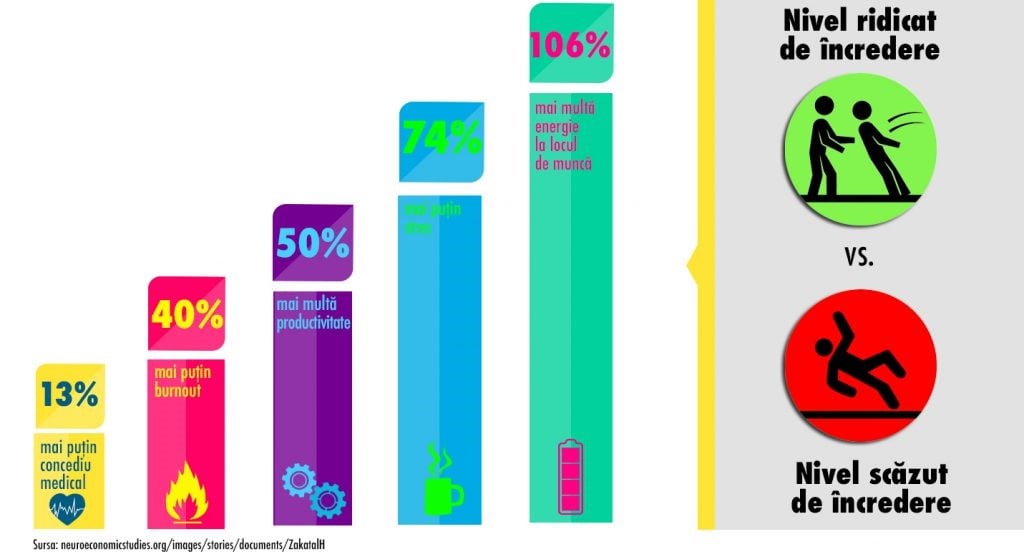Nobel laureate in economics Vernon Smith and neuroeconomist Paul J. Zak have demonstrated, using neuroscience, the direct relationship between trust and performance. Behaviorally, the hormone called oxytocin reduces fears and increases confidence. The human brain chemistry changes when there's a feeling of trust, speeding up deliberative processes and unleashing the potential of individuals. This discovery offers HR managers a new perspective, which may ease the path to employee performance.
But let's be honest, the corporation culture is based more on rules, policies and procedures, than on trust, which increases the stress levels of employees, and stress is recognized as a potent inhibitor of oxytocin - the trust hormone.
Although - according to PwC's 2016 Annual Global CEO Survey - 55% of executives in 83 countries believe lack of trust is a direct threat to business development; most have no idea how to cultivate trust relationships with employees and unsuccessfully try to adjust procedures or to write more user-friendly employee manuals.
But what is trust?
Science defines trust as a signal the brain sends when oxytocin levels rise and is decoded as a sense of security towards another individual.
Organizations that aspire to a culture of trust must secure this feeling transversally and mutually in all stages and processes specific to the functioning of an organization, starting already from the interview and the onboarding stages, when first experiences are essential for building trust.
Trusting doesn't mean being superficial in dealing with others - colleagues, employees, managers, not controlling or expecting less from them, but treating them as responsible adults, capable of getting things done. Trust and responsibility are mutually conditioned and can only work together.
How to lose or gain your employees' trust
Just like in real life, trust is difficult to gain in business and can be lost in a second. Secrecy or withholding of information (sometimes based on the assumption that people will misuse it), taking credit for someone else's work, lack of strong leadership and a work environment based on communication and collaboration - all of these lead to a decrease of trust. And when trust level decreases, costs increase. Fortunately, the converse is also true.
When managers trust their employees, they tend to react accordingly, not to disappoint. For example, in situations that involve change, even the less popular decisions are not called into question because employees are trustful, a fact that ensures everyone a level of comfort.
Another way to cultivate trust in the organization is the fair - not equal, as some would say - treatment of employees. Traditional companies tend to treat everyone the same, similar to a uniform mass, to reduce the “risk” of differentiation, but this only inhibits employees's personality and unique abilities. An employee who feels the manager doesn't trust them and treats them indiscriminately will not use their potential to perform.
Trust is not just a social virtue, but a powerful motivator that leads to performance. It is only by making trust a priority for everyone that loyalty, dedication and performance can be expected from those who ultimately determine the fate of the organization: the employees.








